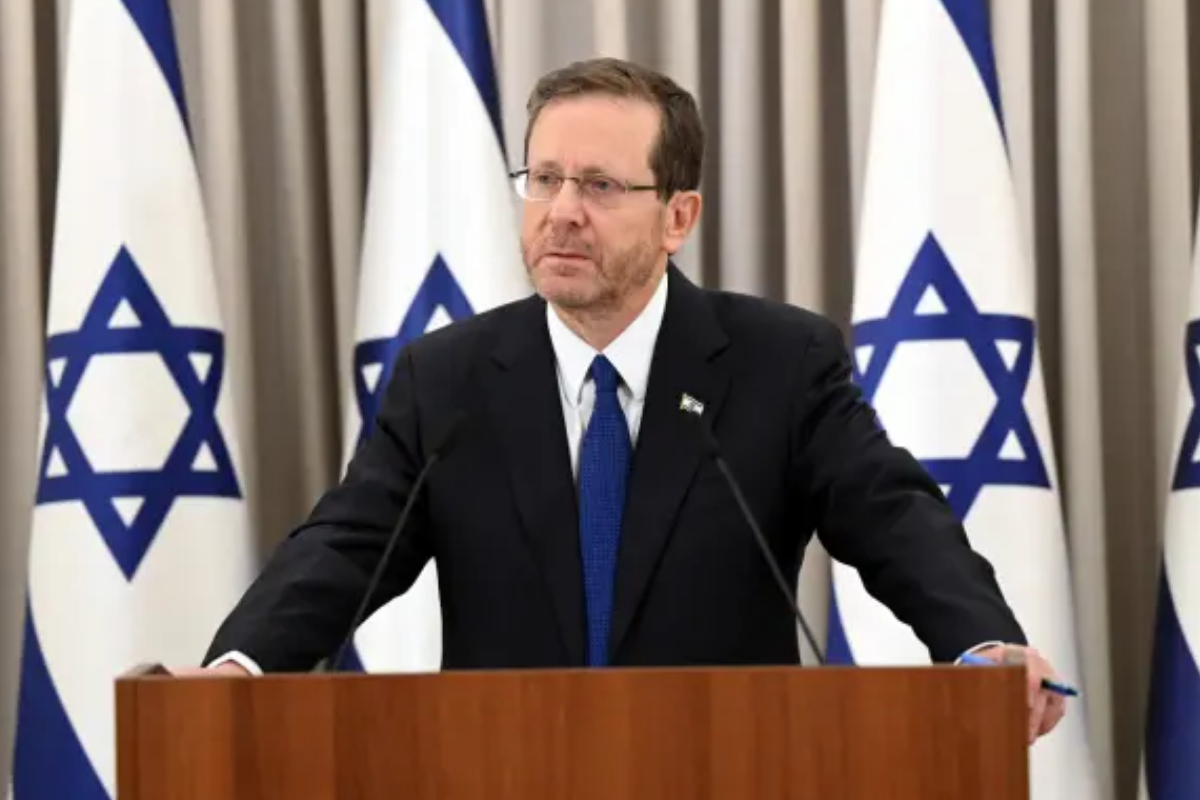- Israel’s president appealed to coalition members to postpone initial legislative moves in parliament.
- Justice Minister Yariv Levin poured cold water on the idea of postponing.
- The center-left opposition has staged protests and called for statewide protest strikes.
Jerusalem: On Sunday, Israel’s president proposed a compromise plan to avoid a “constitutional breakdown” and even violence over a controversial judiciary overhaul demanded by Prime Minister Benjamin Netanyahu’s hard-right administration.
President Isaac Herzog’s rare prime-time television speech, whose figurehead position is intended to unite an often contentious population, included an appeal to coalition members to postpone initial legislative moves in parliament, which some had hoped to begin this week.
But Justice Minister Yariv Levin poured cold water on the idea of postponing, saying in a statement reacting to Herzog’s address that while he did not oppose dialogue this “should not be linked to progress in the legislation proceedings”.
The center-left opposition has staged protests and called for statewide protest strikes at the Knesset on Monday, accusing Netanyahu of seeking greater influence over the justice system while he is being tried on corruption charges.
Netanyahu, who has denied any wrongdoing in his trial, has stated that the measures are intended to restore the balance between Israeli authorities.
Brink of constitutional and social collapse
“We are on the brink of constitutional and social collapse,” Herzog said. “I feel – we all feel – that we are barely a moment away from a collision – and even from a violent collision.”
The White House, which normally avoids engaging in Israel’s domestic affairs, issued a similar, albeit more veiled, call.
“The genius of American democracy and Israeli democracy is that they are both built on strong institutions, on checks and balances, on an independent judiciary,” U.S. President Joe Biden said in a statement.
“Building consensus for fundamental changes is really important to ensure that the people buy into them so they can be sustained.”
Recent polls suggest relatively little support for the planned judicial changes in their current form.
Herzog asked the administration and opposition to initiate early discussions based on five principles. These would entail establishing a procedure for enacting Israel’s quasi-constitutional core legislation and prohibiting the Supreme Court from interfering with them.
Another concept would clarify the Supreme Court’s authority, which the administration has accused of overreach. Herzog also called for a shake-up of the committee for selecting justices – but differed with the government on the format, noting that “no side should have a built-in majority”.
Opposition leader Yair Lapid said Herzog’s plan was worthy, but that “the struggle will not be halted and the protest will not stop” until an agreement is reached.
In a rare joint statement, Israel’s five major banks, Bank Hapoalim, Bank Leumi, Israel Discount Bank, Mizrahi-Tefahot, and First International Bank of Israel, expressed support for Herzog’s efforts to establish broad agreements that would help the Israeli economy.
Legal experts, economists, and former security and economic officials, including Netanyahu’s confidants and appointments, have cautioned that his administration’s judicial initiatives could have major diplomatic and economic consequences.
[embedpost slug=”/israels-itamar-ben-gvir-orders-police-to-remove-palestinian-flags/”]



